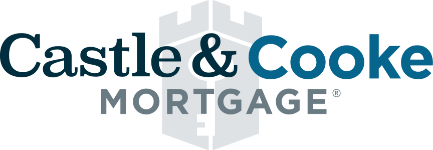
If you have credit card, medical, or other debts, you may be able to consolidate those with a debt consolidation refinance! Your home's equity could help unlock potential opportunities for you.
Millions of families around the country are refinancing their mortgages, and it makes a ton of sense. Even though interest rates are a bit higher than they have been, credit card rates are at a record high at 25% - so consolidating your debts with your mortgage could help you improve your monthly cash flow.
The problem with debt
Debt can become a nasty problem for families of all shapes and sizes. Sometimes, this debt comes from plain old spending—things like store credit cards are a common culprit. Other times, they come from higher education and transportation costs or unavoidable circumstances such as medical bills and job loss.
No matter how you got into debt, getting a handle on it can give you peace of mind (not to mention freedom from your creditors). It can also free up a little room in your monthly budget for savings—and maybe even a little fun!
Refi 101: It’s all about equity
There are as many ways to get out of debt as there are to get into it, and they range from straight up budgeting to bankruptcy alternatives such as debt repayment plans or debt consolidation loans. But if you have equity in your home, you might be able to use it to help restructure your finances and pay off some of the most difficult debts.
But what is equity, exactly? It helps to understand the idea of principal first. Principal is the original amount of money you borrowed from your mortgage lender. For example, if you bought a home for $300,000 with a down payment of $60,000, your principal would be about $240,000. Each month, part of your mortgage payment would go toward principal and part would go toward interest (which is the amount charged for the privilege of borrowing money).
Equity is the opposite of principal–it’s the percentage of a financed property that you already own.
In our above example, you would have started out with that $60,000 in equity, or about 20% equity. That ratio could change based on two things: how much you pay back and how much your home is worth.
For example, imagine that the home you purchased for $300,000 is now worth $350,000 because home values have gone up in your neighborhood. Since you've also been making payments for a while, your principal is now $200,000. That would mean you have $150,000 in equity, or about 43% equity. Pretty cool, right?
The thing is, that equity isn’t doing anything for you just sitting in the bank, Jessie explained. But there are plenty of ways to put it to work.
How to use equity to restructure debt
One of the most popular ways to take advantage of the equity in your home is with a cash out refinance. Here’s how it works: You take out a new home loan that pays off your old loan and take out some of the equity as cash.
In the above situation where you have $150,000 in equity, you could use a cash out refinance to take out $50,000 and still have about 29% in equity. Then, you could use that $50,000 to pay off other outstanding debts. You would still have to make payments on your mortgage, of course, and your principal would increase, but those payments would probably be at a lower interest rate than you've been paying on the other debts.
The most obvious benefit is the likelihood of a much lower interest rate, since some of those other debts can carry APRs of 12-15% or higher. It can also be nice to have just one payment, and you could even see benefits in your FICO score if you are able to reduce your debt-to-income ratio and make on-time payments more consistently.
It comes down to this: tapping unused equity in your home could mean saving a ton on the cost of borrowing money using unsecured debt such as credit cards.
There are a few potential downsides to be aware of, however. You’ll have to be sure you can make the payments reliably, and you'll need to change your habits around money so you don't have to tap that equity again. You may also be looking at slightly higher rates for a cash out refi than you would for other kinds of refinances. Your Loan Officer will be able to discuss all the details.
Common ways to use equity
We recommend working with an experienced, knowledgeable Loan Officer any time you’re considering a refi to help with debts. If you just leverage the strongest asset you have, which is your home, you could potentially make your money work for you.
Our loan officers have helped individuals use their equity for a huge variety of debts. They include:
- Medical debts
- Mortgages on investment properties
- Home equity loans
- School loans (hint: you may not even have to pay cash out rates)
- Buying out a former spouse or other co-borrower
- Living expenses in case of a layoff or disability
Using a rate and term refi to restructure debt
There's another type of refinance that could help you restructure your family finances, and it’s known as a rate and term refi. According to Jessie, he recommends these often for homeowners and property investors alike.
Put simply, a rate and term refinance is a new loan that can change how long you’re borrowing money, how much you're paying in interest, and whether you need to pay mortgage insurance. When rates are at or near record lows, a rate and term refi could mean thousands of dollars a year in savings on your mortgage payment.
This can free up money in the long-term, but could also add some wiggle room in your monthly budget to pay off smaller debts.
You could also use that equity to pay for closing costs or to buy an even lower rate, Jessie said. It can get pretty complicated, but your Loan Officer will be able to help you crunch the numbers with your specific goals in mind.
A word of caution
It’s important to remember that you’ll have to qualify for a home loan refi—if your debts are truly out of control or you've lost an income source, it may be difficult to qualify. You'll also need to pay closing costs (budget 2%—5% of the home’s total value) and you might need a refinance appraisal, just like you did when you first got the mortgage. This is why we always recommend to get pre-qualified ASAP.
When you're ready to really dive in, we recommend checking out our sweet refinance calculator.
Talk to a Loan Officer
It’s always important to have a great Mortgage Loan Officer on your home finance team, but it’s especially important when you’re looking into refi options. Getting the loan product, structure, and terms just right could save you thousands of dollars.
If you had a great experience with one of our terrific Loan Officers, give them a call today to see what your home's potential equity could do for you. If you’re still looking for that perfect person to help structure your refi, check out our list of Loan Officers in your area.


